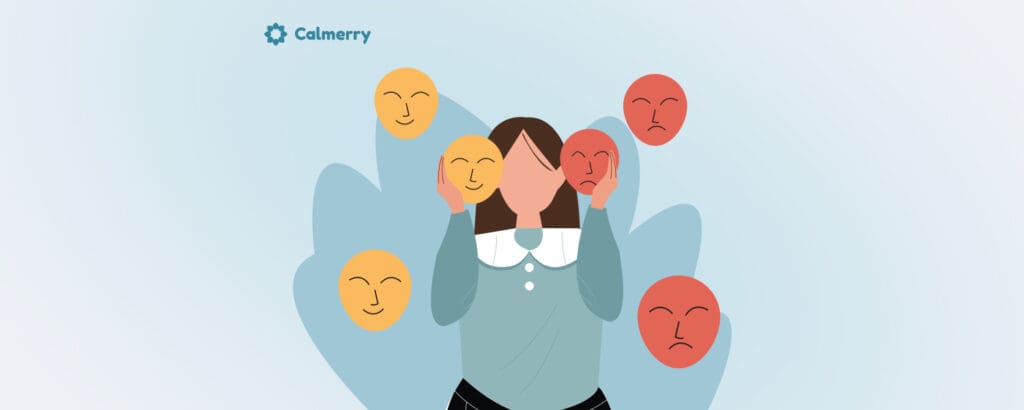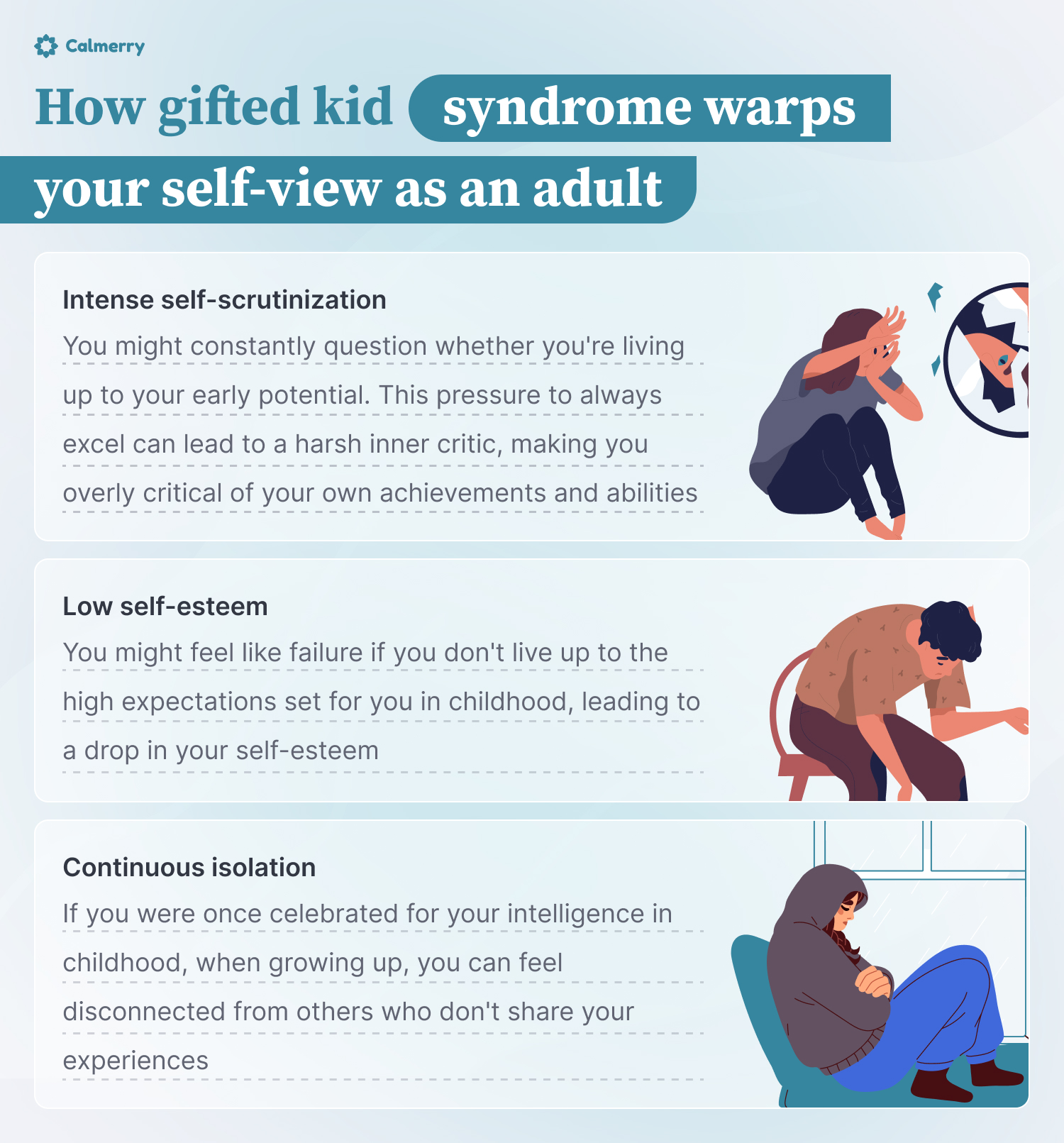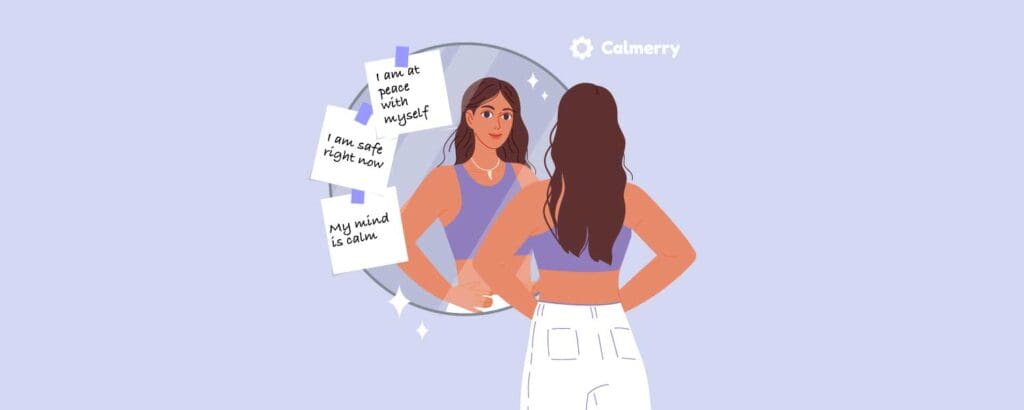Is “Gifted Kid Syndrome” Warping Your Self-View as an Adult?

In this article
Achieving things and celebrating your accomplishments feels good. It’s how you know you’re doing something right and are lining yourself up for success.
It’s also a foundational way children start down the path to “gifted kid syndrome.”
The idea of a gifted kid might sound familiar if you were encouraged to take tougher classes in school because learning was easy for you. You might relate if you read multiple books a week and felt like you could do anything when you were younger.
There’s hope if you’re dealing with gifted kid syndrome effects as an adult.
Learning more about how it shapes your self-view will lead to solutions that could heal your mental health. All you have to do is try something new.
What is gifted kid syndrome?
Gifted kid syndrome is a social term for any child who grew up with above-average skills [1] Pezzuti, L., Farese, M., Dawe, J., & Lauriola, M. (2022). The cognitive profile of gifted children compared to those of their parents: a descriptive study using the Wechsler scales. Journal of Intelligence, 10(4), 91. https://doi.org/10.3390/jintelligence10040091 and now deals with adverse mental health effects as a result of high expectations.
Researchers define gifted children as having an IQ of 115-180 or higher and any mix of additional qualities, such as:
- Problem-solving skills
- Creativity
- Naturally high logical skills
- Curiosity for learning
- A wide range of interests
Adults accidentally instill this syndrome in young people by putting them in advanced classes, rewarding good grades, and encouraging them to reach goals that continuously get harder to achieve.
The push might turn those children into brilliant, high-achieving adults. Yet, it can also result in gifted kid syndrome that negatively affects their lives through adulthood.
Effects of gifted kid syndrome
Having someone pushing you to try harder can be great. However, it can also lead to gifted kid syndrome and the effects people feel in adulthood.
Here are some examples of issues that may arise due to gifted kid syndrome:
You might have anxiety
When you’re young and trying to get good grades in school, you’re constantly thinking through academic problems. It can train your brain to overthink other things, too.
Relationships and social experiences are some of the few things that last from grade school through adulthood. They could be when you feel the most anxiety if your brain is still trying to overthink academic challenges that no longer exist in your life.
Understanding if you’re doing well as an adult is much more challenging. You don’t have report cards and yearly graduations to mark your success.
Not having those markers can spike your anxiety when thinking about how you’re doing and if your efforts are a waste of time.
– Jack Shaw, Senior writer of the men’s lifestyle publication Modded
You may push yourself to achieve high standards
Gifted students end up in more rigorous courses designed to challenge them on the level they need. It’s a point of pride for many young people, but there are no honors classes in adulthood.
Instead, you might replace this part of your gifted child experience with high standards you set for yourself.
That could look like managing your health perfectly, achieving the highest rung on the corporate ladder, or managing your social life effortlessly.
No matter what standard you try to reach, it’s always higher than people you know with similar goals.
You could struggle with constant frustration
Adults sometimes make the mistake of telling a gifted child they exceed because everything comes naturally to them. While it might look that way, it teaches young people that everything will feel easy forever.
The logical part of your brain might know that’s impossible, but that doesn’t mean it makes sense to your emotional processing.
When something isn’t instantly easy for adults with gifted kid syndrome, they feel constantly frustrated until they can master it.
Your frustration may worsen if you feel guilty for having negative feelings or thoughts, whether or not you tell anyone about them. Maybe you were taught in childhood that you were letting someone down if you didn’t like something people expected you to do.
It’s common in adulthood but more intense for people who grew up as gifted kids.
How it may warp your self-view as an adult?
You’re not a child anymore and you don’t need good grades. Although, your gifted child experience may still affect your self-esteem.
It creates lingering effects that deteriorate a person’s self-view until they learn to recognize and resolve the symptoms.

It could cause intense self-scrutinization
Self-scrutinization is sometimes better known as imposter syndrome. You might think that you don’t deserve to be where you are in life because you have a flaw or make mistakes.
You might hyperfocus on those issues by going to extreme lengths to fix them.
People also live with intense self-scrutinization by criticizing themselves for minor transgressions after a social incident or private mistake.
You feel like you should know how to handle everything perfectly all the time, so even microscopic failures seem like catastrophic personal problems attached to your identity.
It might result in low self-esteem
If you don’t get the confirmation of good grades, prizes, or constant words of encouragement, you might think you can no longer do anything correctly.
The reward systems that work in childhood don’t exist for adults. Instead, you have to find new ways to build your self-esteem.
Living with the effects of gifted kid syndrome makes that harder. All you see is your mistakes.
You aren’t sure how to tell if you’re doing well in life. It feels personal, resulting in lower self-esteem no matter how successful or happy you look to other people.
It may trigger continuous isolation
Being smart sometimes makes people lonely. Other kids in your class might not have related to you or saw your talent as a threat.
The isolation that started in your younger years might be overwhelming by the time you’re an adult.
You might feel like no one can ever relate to you. If you’ve spent your life pursuing goals other people wanted to see you accomplish, you might even feel like your true self doesn’t exist. It’s one of the three types of loneliness people live with, but you don’t have to feel that way forever.
– Jack Shaw, Senior writer of the men’s lifestyle publication Modded
Ways to reverse gifted kid syndrome effects
Gifted child syndrome doesn’t have to change your life forever. No matter your age, you can rebuild your mental health and heal your self-view as an adult.
1. Talk with a therapist
A licensed therapist specializing in cognitive behavioral therapy (CBT) or compassion-focused therapy (CFT) could help you overcome the negative thought patterns started by your gifted kid label.
Both forms of therapy address things like processing distressing thought patterns [2] Institute for Quality and Efficiency in Health Care (IQWiG). (2022, June 2). In brief: Cognitive behavioral therapy (CBT). InformedHealth.org – NCBI Bookshelf. https://www.ncbi.nlm.nih.gov/books/NBK279297/ and breaking down self-criticism [3] Steindl, S., Bell, T., Dixon, A., & Kirby, J. N. (2022). Therapist perspectives on working with fears, blocks and resistances to compassion in compassion focused therapy. Counselling and Psychotherapy Research, 23(3), 850–863. https://doi.org/10.1002/capr.12530 through talk-based sessions.
As you resolve the emotions and thought patterns leftover from your years as a gifted child, you’ll develop tools to rebuild your self-view. It’s much easier to do that much introspective work with an expert trained in those techniques.
2. Prioritize one thing that’s not productive
Achieving excellence throughout your life may have left you with an overly productive mindset.
When was the last time you did something just for the joy of it?
Add something new to your daily routine if it’s been a while.
You might spend five minutes drinking coffee on your porch while listening to the birds. Try meditating before bed to experience a greater sense of calm at night.
Your new activity shouldn’t be something meant to impress anyone, pay the bills, or sharpen your skills. Finding joy that’s exclusively meant to make you happy is an excellent way to break down the power of a constant work ethic.
3. Explore a nonproductive hobby
Everyone deserves to do things just for fun. Adults who were gifted kids in their childhood tend to spend so much time being productive that they forget to find hobbies.
Try something that isn’t competitive and won’t pay the bills, like writing about your experiences in a journal.
Journaling is a great hobby, but it often seems like a waste of time for people who are used to external validation, goals, or low self-esteem. Your entries aren’t becoming viral blog posts or words of wisdom published in a magazine, so why write them?
The simple act of expressing your feelings helps people process things that negatively affect their lives. You’ll become a friend to your own emotions. It ultimately builds higher self-esteem rooted in who you are, not what you do.
4. Repeat positive affirmations specific to your struggles
Positive affirmations are more powerful than you might think. Crafting a list of good things to say about yourself and repeating them daily reduces depression symptoms by slowly rewiring your brain.
Stating the positive statements as facts trains your mind to believe them. Start with affirmations like:
- I do not need to be overly productive to be enough for myself.
- I am proud of my current abilities.
- I do my best every day.
- I deserve to rest.
- I do not let my mistakes define me.
Make as many affirmations as you’d like. Repeating them out loud at least once a day could start the mental health healing you need.
If you combine them with other ways to reverse gifted kid syndrome, you’ll quickly find yourself experiencing more joy.
5. Consider what makes you happy
Gifted kids learn to do things according to what results in external affirmations. You may have spent your youth doing what got the most positive feedback rather than leaving time for things that made you happy.
Taking this step in adulthood may feel complicated. It could mean reflecting on something like why your career isn’t fulfilling.
You might have become a lawyer because everyone said you were the smartest in your class, but baking cakes in your own bakery would make you happier.
Other people might not view those two careers as equally worth your time, but you’re no longer working to get gold star stickers every day.
Doing introspective work to find the things that make you happy will guide you toward a better life rather than striving to be the best in something that doesn’t.
Start living your best life today
Gifted kid syndrome doesn’t have to hold you back from your full potential as an adult. Stop it from warping your self-view by understanding how it affects the mind and what you can do to start healing.
Reaching out to a therapist, encouraging yourself, and reframing your perspective are just a few simple steps that will finally make frustration and self-doubt things of the past.
Calmerry offers online therapy that can help you take these steps. With professional guidance, you can begin to overcome the challenges and rediscover your true potential.
Pezzuti, L., Farese, M., Dawe, J., & Lauriola, M. (2022). The cognitive profile of gifted children compared to those of their parents: a descriptive study using the Wechsler scales. Journal of Intelligence, 10(4), 91. https://doi.org/10.3390/jintelligence10040091
Institute for Quality and Efficiency in Health Care (IQWiG). (2022, June 2). In brief: Cognitive behavioral therapy (CBT). InformedHealth.org – NCBI Bookshelf. https://www.ncbi.nlm.nih.gov/books/NBK279297/
Steindl, S., Bell, T., Dixon, A., & Kirby, J. N. (2022). Therapist perspectives on working with fears, blocks and resistances to compassion in compassion focused therapy. Counselling and Psychotherapy Research, 23(3), 850–863. https://doi.org/10.1002/capr.12530
online therapy
live video session


